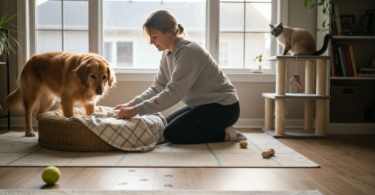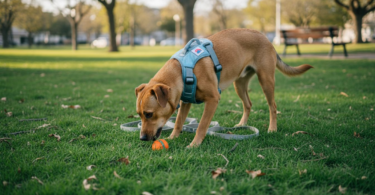A recent study by Japanese researchers revealed why it is important to greet your dog when you get home. The research, which was based on the emotionality of pets, placed special emphasis on the dogs’ encounters with their caregivers. The point is that you should not ignore your dog when you come home, as contact is necessary for your pet and can help strengthen the bond between the two of you.
Dogs are wonderful beings that accompany us in our lives and provide us with great emotional support. This relationship is unique and unrepeatable, but for it to be healthy, it is important that both parties have their space and respect each other. Therefore, greeting your dog when you get home is a good practice that will help you strengthen the relationship you have with him.
It is important to greet your dog
Here are the reasons why it is important to greet your dog as soon as you get home. It should be noted that it was previously recommended that when you arrived home you should first make yourself comfortable before greeting your pet. However, the current recommendation is quite the opposite. In other words, as soon as you arrive, greet your furry friend: he will thank you for it!
- Strengthening the bond: Greeting your dog when you come home shows affection and attention, which helps strengthen the emotional bond between you and your pet. Dogs are social animals that appreciate positive interaction with their owners.
- Sense of belonging: By greeting your dog, you are communicating to him that he is an important part of your life and home. This can help reduce the separation anxiety that some dogs experience when their owners are absent.
- Reaffirmation of leadership: In the pack hierarchy (a concept that still influences the behavior of domesticated dogs), greeting your dog first can reaffirm your position as leader. This can help maintain a balanced and respectful relationship with your pet.
- Mental and emotional stimulation: Greeting your dog involves interaction, eye contact and verbal or gestural communication. These actions stimulate your dog’s mind and senses, contributing to his emotional and mental well-being.
- Obedience exercise: Greeting your dog is an opportunity to reinforce basic obedience commands, such as “sit” or “stay”. This encourages their training and reinforces their ability to respond to your cues.
- Reduced stress and excitement: The excitement of seeing you come home can generate stress or excitement in your dog. Greeting them calmly and after a few minutes of waiting can help reduce these emotional levels and teach them to manage their emotions.
- Positive greeting: Greeting your dog in a friendly and positive manner sets a cheerful and pleasant tone for the reunion. This helps your dog associate your arrival with positive emotions.
Each dog is unique
Remember that each dog is unique and may respond differently. Some dogs may be more excited and some may be calmer when they see you coming. It is important to read your dog’s cues and tailor your interactions to meet his individual needs.
Image courtesy of https://pixabay.com, all rights reserved.







